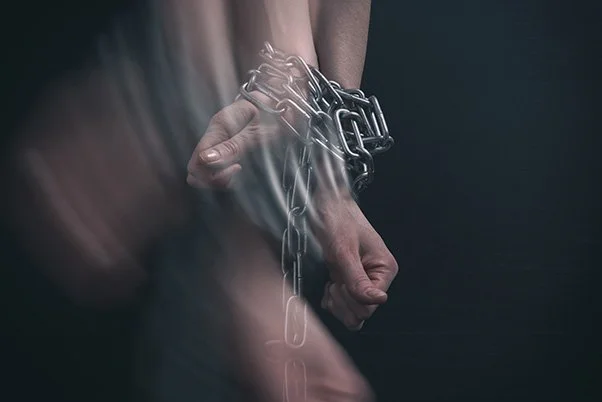How to Actually Forgive: Lessons You Didn’t Learn in Church (Part 2)
You cannot heal in the same place you were hurt.
In my last post, I stressed the importance of setting boundaries in relationships before attempting to do the work of forgiveness. It’s imperative to set boundaries “to stop the bleeding” so you can clearly assess the wounds and heal the damage.
Forgiveness is like sacred heart surgery. You do the work safely in an operating room...not while you’re still standing in the line of fire.
With that said, let’s move on to the sacred work of forgiveness.
“In order for forgiveness to really happen, something has to die…. Whether it’s your expectations of a person, there has to be a death for forgiveness to happen. In all these faith communities, where forgiveness is easy and love is easy, there is not enough blood on the floor to make sense of that. And so I thought about why forgiveness is so hard in our culture. Because there are two affects (or emotions) that people fear the most, and it’s shame and grief.”
Brené Brown, Ph.D., LMSW
And therein lies the key to forgiveness: something has to die. You have to be willing to feel shame and grief. This process is not quick or easy. But it is essential.
Brown goes on to describe wanting this kind of faith to be like an epidural. True faith doesn’t just make the pain go away. You don’t just get over your pain or leave it in the past. You have to bring it into the present, feel it, and work your way through it. Faith is no epidural. It’s a midwife that sits with you and tells you to push. It’s supposed to hurt.
Some transgressions are easy to spot: someone cheated on you. Someone betrayed you. Someone left you. Someone abused you. Someone violated you. You were a victim of a crime. You were bullied. Other times, there's not a "someone". You must forgive reality for being what it is. Someone you loved died. Someone got sick. A dream wasn't fulfilled. Your childhood, or parts of it, sucked.
Sometimes our expectations are what need to die. Stop expecting they'll be the spouse you want. Stop expecting they'll be the mother or father you needed. Stop looking for affirmation that will never come.
If there's anyone in your life you feel cold, angry, unsympathetic or resentful towards, that's a sure sign there is a deep wound underneath those feelings.
You can only heal what you're willing to feel.
Even if we understand the need to bring up past wounds to heal, it's often difficult to access the emotions underneath our anger. Here are just a few suggestions to help you begin to feel your emotions and bring them to the surface to deal with. These take practice: meditation, yoga, journaling, making lists of grievances against a person, going to therapy. EMDR Therapy is particularly effective in helping to access buried emotions from the past and reprocessing the feelings in a healthy way.
Emotional pain cannot just be left in the past. It is an energy that buries itself deep into our cells. It causes DIS-ease in the body and often outwardly manifests with physical symptoms. Through the grief process, this energy is transfigured into love and compassion. All of your cells respond to this and your body becomes lighter, more at ease, and more luminous.
What I'm describing is actually physiological. Grief leads us to the point of futility--the point at which our brains register that what we are trying to hold onto or do is impossible. Only then can we experience the disappointment and sadness that follow and our brains can adapt.
"Futility must sink in for the energy shift to occur, the shift that leads to acceptance, from frustration to a sense of peace with how things are. It is not enough to register it intellectually, it must be felt deeply and vulnerably, in the very heart of the limbic system, at the core of the brain's emotional circuitry...One of the most obvious signs of futility sinking in is the eyes watering...When futility registers emotionally, signals are sent to the lacrimal glands resulting in the eyes watering. These tears are different from the tears of frustration...The tears of futility are set off by different neurological circuitry and are psychologically unique. They feel different on our cheeks. They are accompanied by a shift in energy: a healthy sadness, a backing-off from trying to change things. Tears of futility actually bring a release, a sense that something has to come to an end. They signal that the brain truly apprehends that something is not working and must be let go of...But if tears of futility never come, adaptation will not occur. Whether our eyes water or not, the most common feelings of futility are sadness, disappointment and grief."
Dr. Gabor Maté, M.D.
When someone is emotionally stuck, instead of feeling sadness and disappointment, there is sarcasm and contempt; an inability to move from mad to sad. Unfortunately, our culture often sends the message that tears are shameful. Humans will do almost anything to avoid feeling grief and shame.
"When we stop crying, it's as if the brain's capacity to process emotions--normally quite flexible and responsive--becomes rigid. It loses its plasticity, its ability to develop. Without futility, as without satiation, maturation is impossible."
Dr. Gabor Maté, M.D.
Forgiveness is the portal through which spiritual rebirth can happen. It is the point where resentment is transformed into compassion. A grievance is a grief that you’re holding onto. In order to forgive you must let go of your grief, that is--grieve. As Christ demonstrates on the cross, the point at which you forgive and allow your grievance to empty from your body through grief...this is when you die to yourself and are buried. This is when spiritual rebirth (resurrection) happens. A seed must be buried and die in the ground to give birth to new life. So it is with us.
Although reconciliation in a relationship is not always possible (especially if that person will not respect the boundaries you've set), you will know you have forgiven when you no longer resent the person who hurt you and you feel peace about the past. You will know when you feel compassion and empathy for that person and can recognize the depth of their own pain that they projected onto you. Often times, we not only need to forgive others, but ourselves. Forgiving yourself allows you to offer yourself love, kindness and compassion as well.
“The holiest of all spots on earth is where an ancient hatred has become a present love.”
Marianne Williamson
Finally, what does forgive 70x7 mean anyway? My counselor helped me to finally see that it didn't mean tolerating the same abuses over and over again. It means that forgiving someone for a past hurt takes time and repetition. You grieve and forgive one day...but then you're triggered and angry again the next day. You forgive the transgression again. You thought you were over it, but then find yourself ruminating again on what happened...grieve and forgive again. You grieve and forgive as many times as it takes for your mind, body, and soul to heal.
A mental construct that helped me do the work of forgiveness in my own life was imagining myself agreeing to everything I had been through in my life before I was born. I'm not making a theological statement with this idea. (And if this idea is NOT helpful to you, please dismiss it). I'm simply sharing something that helped me take responsibility for doing the work of forgiveness in my own life. This allowed me psychologically to acknowledge the wrongdoing...and at the same time realize that my "eye of the needle" was to forgive my grievances. This helped me to find purpose in suffering. Without it, I may not have come to know what I know now. It helped me honor my suffering and use it to propel me forward. It kept me from blaming God or anyone else. It was as if I could tell myself, "Heather, this is what you needed to wake up...so don't get stuck wallowing in your anger and resentment." What happened in your past is not fair. But it is solely your responsibility to do the healing work.
If you think that what I’m saying is too easy--ask Jesus Christ if what he did was too easy. Forgiveness is the hardest, most risky, most courageous act that you will ever do in your life. And until you do it you will not truly live. Jesus came to show you how to have life and life to the fullest. Philippians 2:12 tells us "to work out our salvation through fear and trembling". Salvation is on the other side of everything you're afraid of. In order to live you have to die. You have to grieve. You have to forgive.
Forgiveness remains the only path that leads out of hell. Whether we’re forgiving our parents, someone else, or ourselves, the laws of mind remain the same: As we love, we shall be released from pain, and as we deny love, we shall remain in pain. Every moment, we’re either extending love or projecting fear, and every thought takes us nearer to Heaven or hell. What will it take to make us remember that ‘the ark is entered two by two,’ that there is no getting into Heaven without taking someone with you?
Marianne Williamson, A Return to Love

